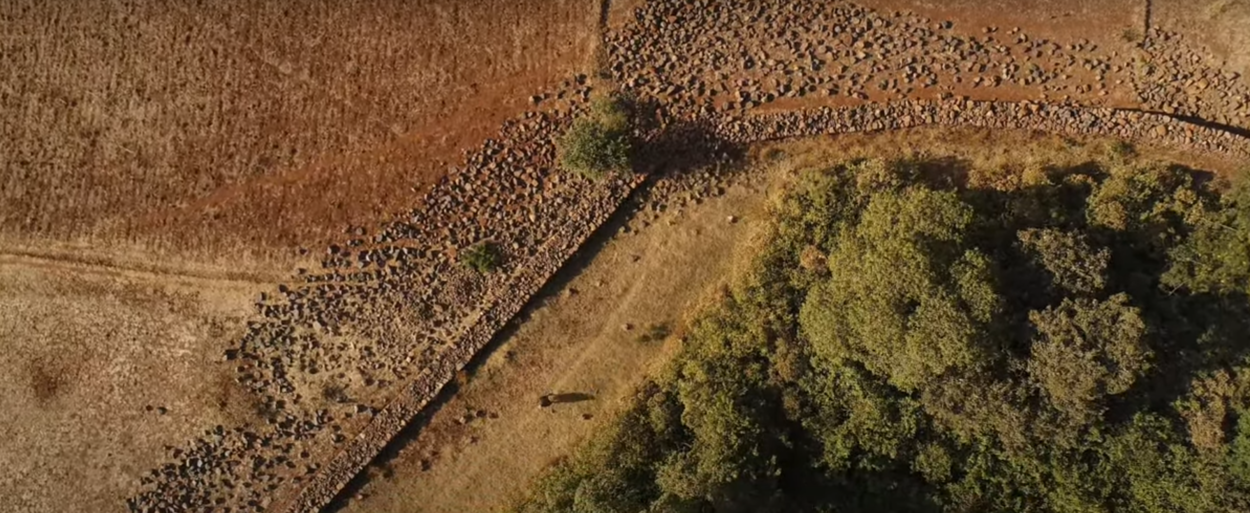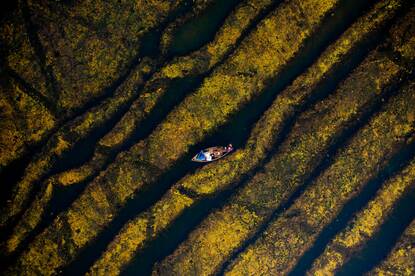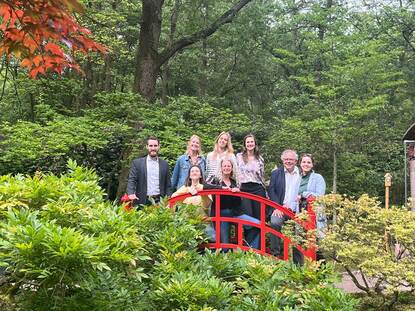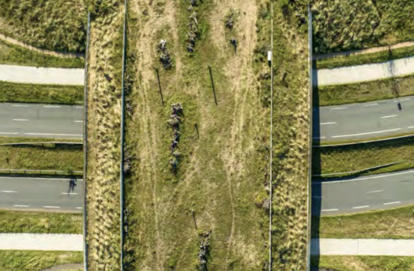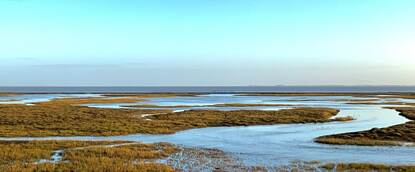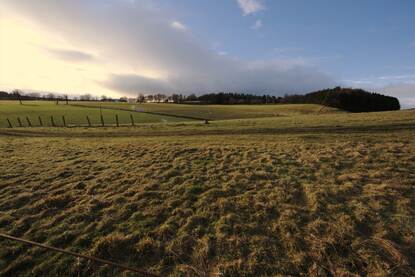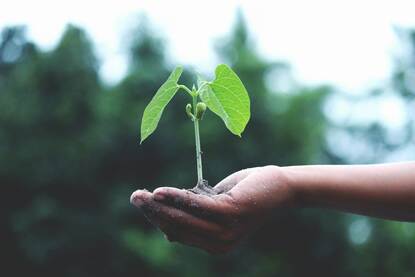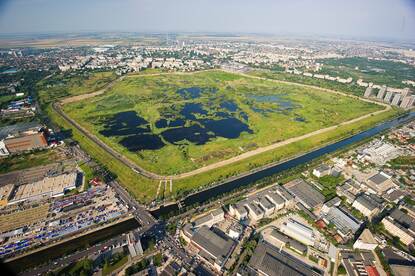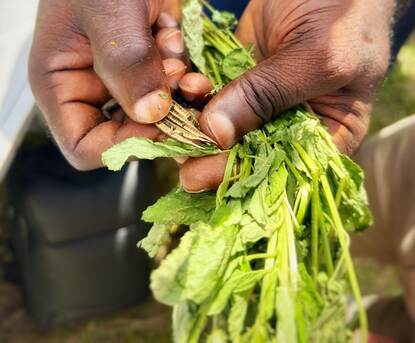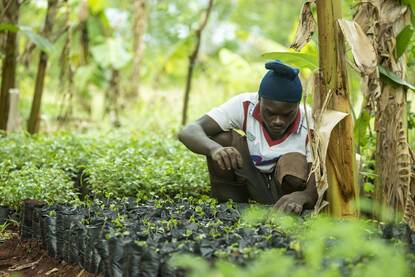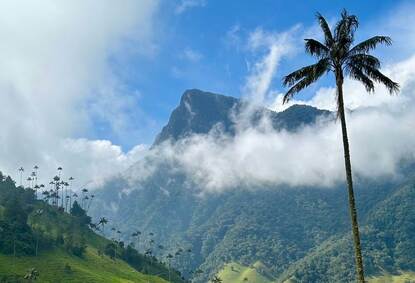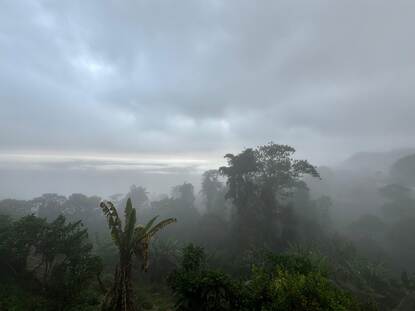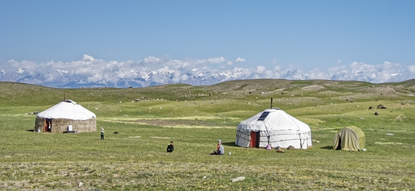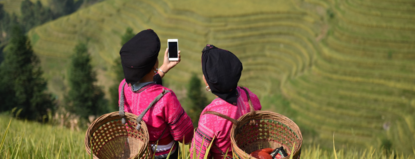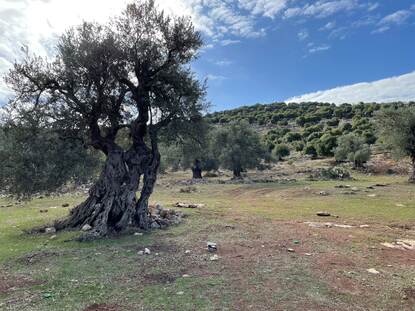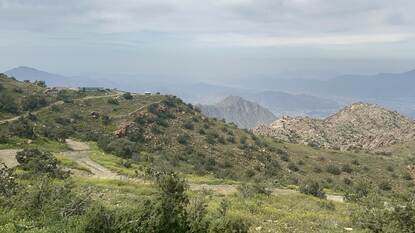Foto Stone build fence to protect the church forests
In Ethiopia, the lands of the Ethiopian Orthodox Churches serve as vital havens of biodiversity amidst widespread deforestation. The Netherlands Agricultural Network (LAN) team at the Dutch Embassy in Addis Ababa is working closely together with non-profit organization ORDA Ethiopia to expand these green areas into the surrounding degraded landscapes. Through this project, they have successfully developed a model site where church forests are sustainably conserved, biodiversity and ecological health are promoted, and degraded landscapes are restored.
The Ethiopian Government is deeply committed to keep its diverse environment safe. It prioritizes biodiversity in the Ethiopian Biodiversity Strategy and Action Plan (EBSAP). According to the Ethiopian Biodiversity Institute, the current EBSAP will address ‘issues comprising biodiversity protection and management for food security’. Another important goal is health and livelihood improvement of the Ethiopian population, especially the rural communities whose survival depends on the use of natural resources.
Church forests as steppingstones for restoration
Ethiopia's highlands have suffered from extensive biodiversity loss due to deforestation, long-term human occupation, agriculture, cattle herding, and population pressure. Consequently, the species richness and floristic diversity of its present fragmented forests have declined. Fortunately, the lands of the Ethiopian Orthodox Churches have survived as islands of natural forest biodiversity in a sea of deforested landscapes. These patches have endured because of the spiritual values attached to them, traditional conservation systems, and the protective patronage of the Ethiopian Orthodox Church, one of the oldest institutions in Ethiopia, with over 35,000 churches.
The existing church forests present great opportunities for restoration. They can serve as steppingstones in the rehabilitation of the surrounding degraded landscape, for example by leading area enclosure programs to full-scale restoration. That is why preserving and restoring them is so important.
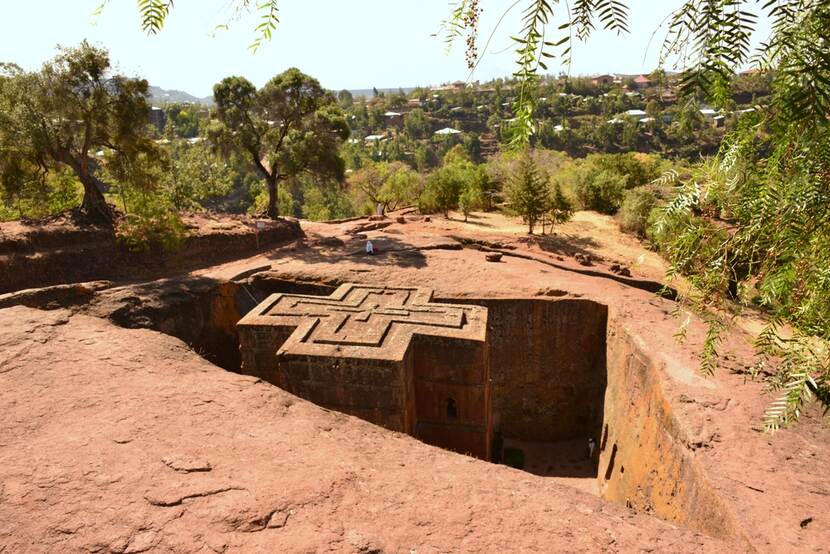
ORDA Ethiopia initiates land restoration project
ORDA Ethiopia is a non-profit organization which aims to end chronic poverty and food shortages in Ethiopia through the promotion of sustainable rural development programs. To further their goals, ORDA Ethiopia has initiated a landscape restoration project with a monastery called LomiDur Kidest Arsema, which is in the Amhara region in the Northern part of Ethiopia. The monastery has six hectares of remnant high forest that are under threats, such as overgrazing by and affecting the plant species grown in these unique forests.
These areas of high forest are surrounded by privately owned eucalyptus woodlots and croplands. ORDA Ethiopia has been working to expand the existing natural forest by replacing these eucalyptus woodlots and croplands, ultimately connecting the monastery’s high forest areas to neighboring church forests.
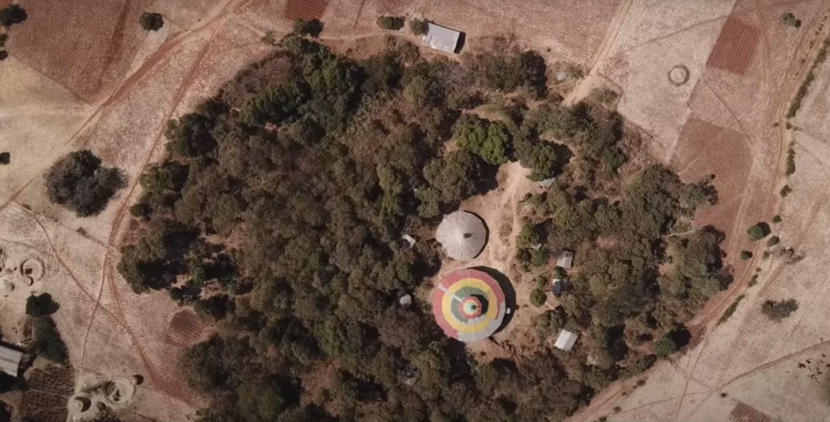
Collaboration with the community
As the needed woodlots and croplands are privately owned, local community involvement is crucial. The monastery engages these communities in discussions about the impact of deforestation on land productivity and the importance of increasing connectivity between degraded lands and church forests.
Once these communities are convinced of the benefits, the monastery collaborates with local administrations to provide farmers with new land. Also, it compensates farmers for standing crops. After that, the land is prepared for the rehabilitation and plantation of indigenous forests.
Current efforts of the LAN team
The LAN team in Addis Ababa has cooperated with ORDA Ethiopia since 2022. Not only by financing ORDA church forest activities, but also – in later stage – by monitoring and possibly visiting the locations. With their joint support, valuable indigenous church forest species have been sown or moved within the identified project area, enhancing natural regeneration and enriching native species in buffer areas and within the monastery’s church forests. In addition, the LAN team is boosting environmental security and forest cover by fortifying forests with stone fencing, planting on communal lands, and protecting the forests from grazing goats, cows and sheep that are owned by the local community.
However, there is still a lot of work to be done. There are thousands of church forests in Ethiopia. ORDA has only started to protect a relatively small number of those.
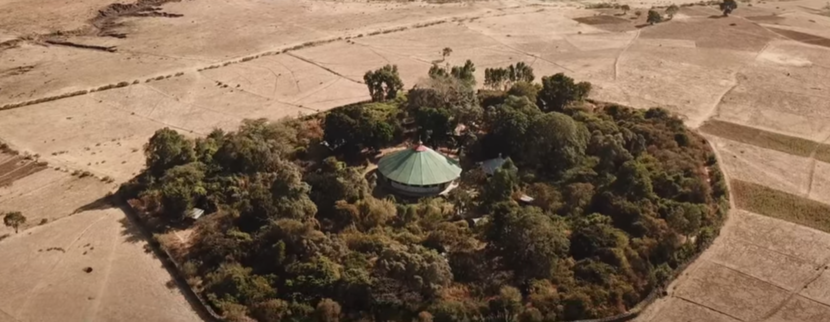
Long-term goals in tackling poverty and food insecurity
Addressing biodiversity loss, land degradation, and deforestation is critical to tackling poverty and food insecurity in Ethiopia. That is why the long-term objective of the project with ORDA Ethiopia is to increase the connectivity of the 35,000 church forests and enhance forest cover and biodiversity.
Through this project, the LAN team and ORDA Ethiopia have successfully developed a model site where church forests are sustainably conserved, and degraded landscapes are restored. This, in turn, will help diversify sustainable livelihood options, increase land productivity across the northern part of the country, and promote a healthy environment.
In addition to church forests, the LAN team's activities will focus on healthy soil and soil biodiversity. Also, it will promote the reduction of food loss and waste, which has a positive impact on biodiversity, as well.
Video 'The Church Forests of Ethiopia'
For a comprehensive overview of the project's achievements and prospects, you can watch this video on YouTube: The Church Forests of Ethiopia.
‘Addressing biodiversity loss, land degradation, and deforestation is critical to tackling poverty and food insecurity in Ethiopia’
More information
Would you like to know more about biodiversity restoration in Ethiopia? You can visit the country page of Ethiopia at the website Agroberichtenbuitenland.nl of the Dutch Ministry of Agriculture, Fisheries, Food Security and Nature. You can also send an e-mail to the LAN team at the Dutch Embassy in Addis Ababa: add-lvvn@minbuza.nl.
